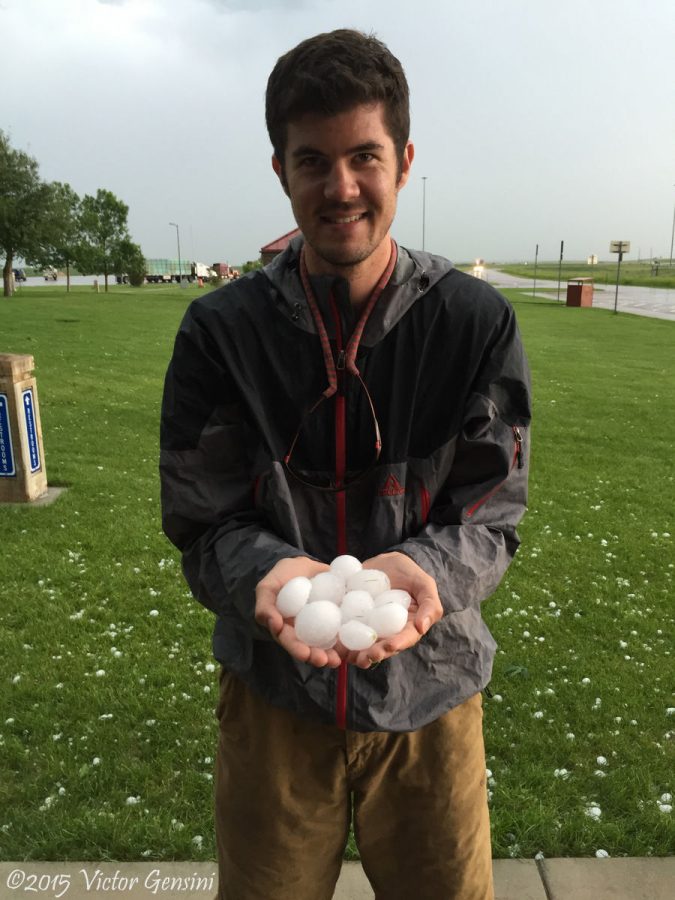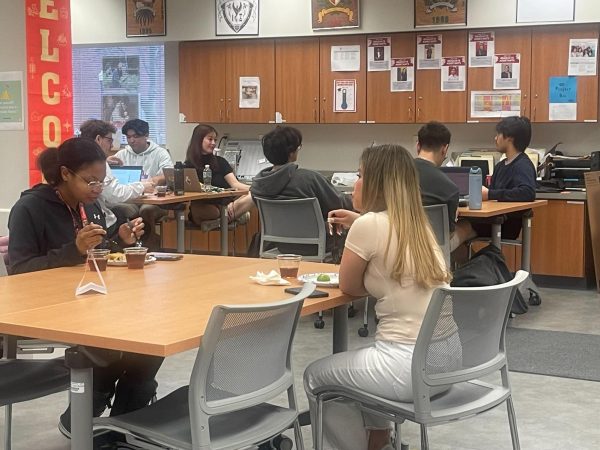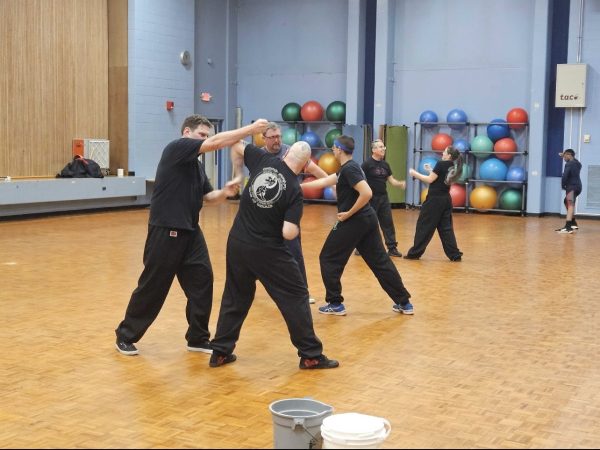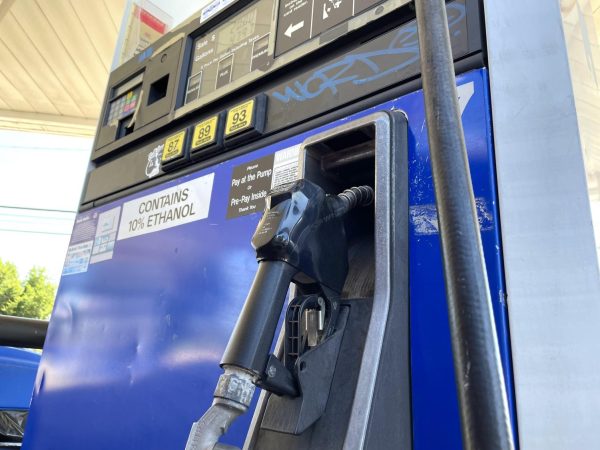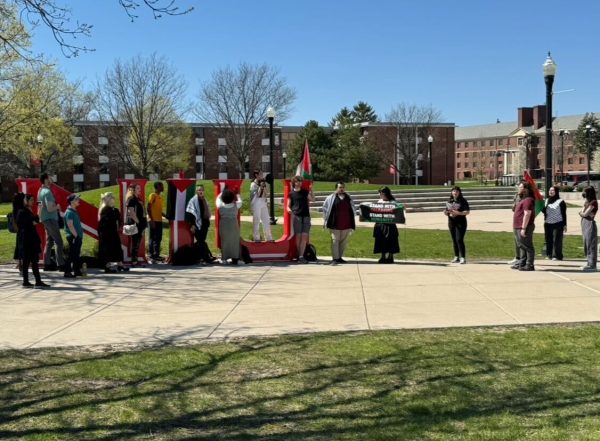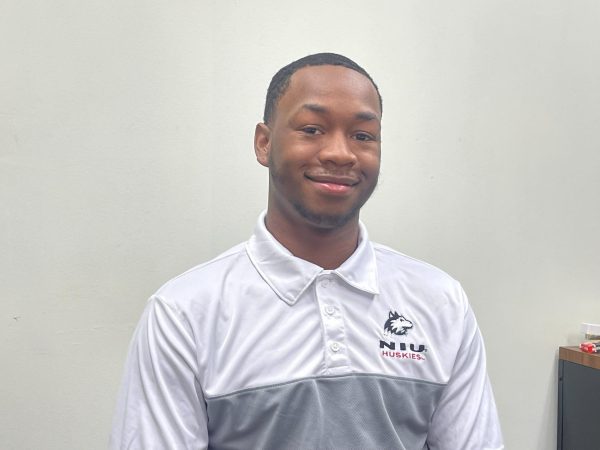NIU welcomes tornado expert
Atmospheric science professor Victor Gensini holds a handful of hail near Dwyer, Wyo. Gensini, who joined the faculty in August, is known for his research regarding the prediction of tornadoes.
September 18, 2017
DeKALB — When atmospheric science professor Victor Gensini was in high school, a tornado tore through his hometown wreaking havoc and taking the lives of eight people.
Gensini said his firsthand experience with the devastating effects of this tornado led to his groundbreaking research in the field of atmospheric science.
Gensini is best known for his 2016 research that led to an early warning system, which allows scientists to predict the likelihood of tornadoes in a specific area weeks in advance. Before this, tornadoes could only be predicted two to three days in advance. Although this study received a lot of attention, Gensini said it is just the beginning.
The tornado Gensini experienced got his mind stirring, and he began to ask questions to learn more about why those lives were lost and whether anything could have been done to prevent such a tragedy.
“People lost their spouses, lost their children,” Gensini said. “So you’re like ‘wow, what was going on? Did those people not know it was coming?’”
It was this line of inquiry that pushed him to start asking the scientific questions that led to his early prediction plan for storm systems like tornadoes. Gensini said it is his personal connection with tragedy that has allowed him to succeed in his field.
“I’m sure those folks that are down in Florida right now that have just gone through [Hurricane] Irma or the folks in Texas for [Hurricane] Harvey, they’re going through the same sort of thing, only a different phenomenon,” Gensini said. “I have no doubt that folks living down there right now, some young scientist or someone who is interested, are going to be going into hurricane research.”
PhD candidate Alex Haberlie received his masters from NIU in 2014 and now works closely with Gensini.
“Most of the work I’ve done with [Gensini] in a research capacity has been developing the [National Science Foundation] grant,” Haberlie said. “He works with this specific technique that allows us to look at climate data in a unique way that you weren’t able to do before.”
Haberlie’s career is also rooted in personal experience with severe weather, creating a connection between himself and Gensini.
“When I was younger, this violent windstorm went through my hometown, and while we were driving, a tree branch almost hit our car,” Haberlie said. “Like with a lot of people’s stories that go into atmospheric science, that spurred an interest in me. I was very scared, but at the same time, I was very fascinated.”
For Gensini, finding the positive in the wake of disaster is what allows him to push forward. Having experienced such a phenomenon firsthand allows Gensini to transcend numbers and data and turn his passion for research into something more personal.
“The event [from my childhood] was one that was not well-forecasted.” Genisini said. “When you see tornado damage firsthand, you’ll never forget it.”
Gensini has since studied this weather event in great detail. He said his experience was not a career-defining moment but rather a career-inspiring moment. He moved on to study at NIU as an undergraduate and has now come full-circle and teaches at the university. Being a Huskie has helped guide his career path and has allowed him to conduct his research in an environment unlike any other, he said. In this climate, he has the chance to reach individuals from across the spectrum.
“It’s the farmer a couple miles down the road to the west,” Gensini said. “But it’s also the water manager over in Naperville who wants to know what am I going to have to do for storm management.”
Genisini said the computer science department at NIU, specifically the use of their supercomputer, has been essential to his research.
“I wouldn’t be here if I didn’t think this department was doing good things,” Gensini said. “The cool part in teaching is when you find something new or you teach something in a certain way, and you see the light bulb above a student’s head going; that’s awesome.”



